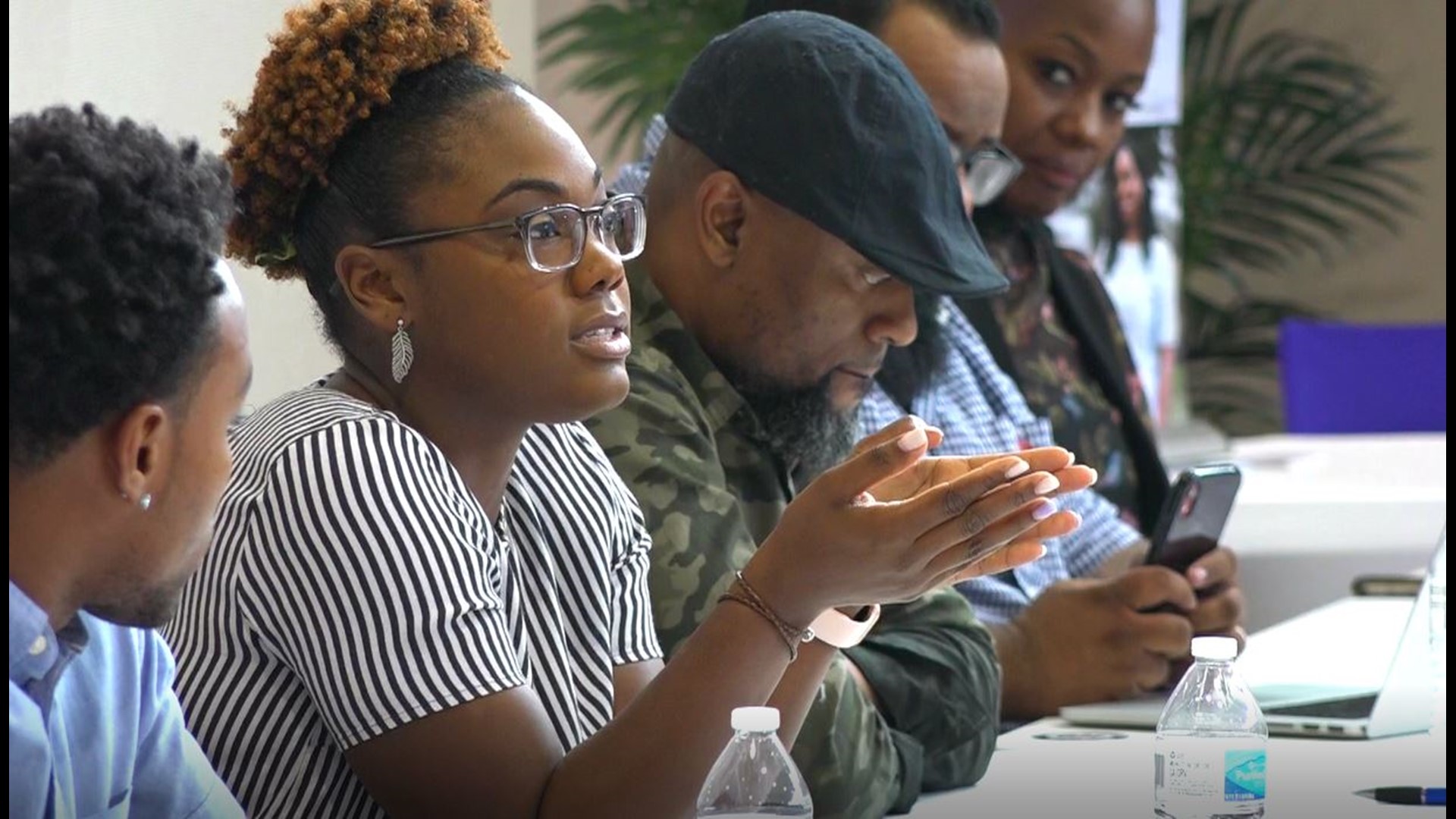KILLEEN, Texas — Teresa Palmore is no stranger to what can happen when mental health issues go untreated.
Her late husband Carlos suffered from post traumatic stress disorder, depression and addiction.
Palmore said Carlos was reluctant to seek help, but even when he saw doctors spanning from Texas to Alabama, he felt they didn't listen to or understand him.
Which led Carlos to take his own life in 2017.
"They found him in Copperas Cove on May 25, 2017," Palmore said. "I remember that week like it was yesterday."
Even with support, Palmore said it became too much for Carlos to handle.
"It resulted in him giving up," Palmore said. "He was tired of them giving him the runaround, and I was pretty much tired of it. He did have a strong friend that was like 'We can still fight.' But he was like, 'I don't want to fight anymore. I can do it myself.'"
Mental health, especially in the black community, has long been a difficult topic to navigate because of the stigmas that surround it.
"The negative stigma in the black community, when it comes to mental health, is that you need to be sick or that there's something wrong with you," Killeen therapist Sharna Daley said. "It's not. We all need self care."
Daley hosted Awake to Dream Again Mind Your Matter to change that narrative.
The first-of-its-kind mental health awareness workshop in Killeen featured a panel made up entirely of black mental health specialists.
"It's all black therapists, all-black professionals and experts," Daley said. "It just gives us the opportunity and the space to talk about mental health and what that looks like for us."
Dozens of community members attended the event.
There were open dialogues about oppression, race, PTSD, suicide, boundaries, relationships and more.
Discussing or reporting mental health issues in the black community is pretty taboo.
Many in the community report a sense of embarrassment or fear of being labeled "crazy" or "dramatic." Often times, members believe turning to religion should be the solution.
DeAndre Little was reluctant to seek help for his early childhood emotional trauma after dealing with difficult relationships, failures and seeing people incarcerated.
"I think it was fear," Little said. "The fear of actually facing those issues. You're talking about generational issues that we're taking care of right now."
Despite his fears, Little attended the workshop; but many believe the stigma goes deeper than just self fear.
According to the American Psychiatric Association, only one in three African Americans who need mental health care actually receive it.
The organization also reports that compared to whites, black people are less likely to have health insurance, more likely to live below the poverty line, more likely to be misdiagnosed. They are less likely to have a doctor who looks like them, listens to them and understands them. They are also more likely to be incarcerated for mental health issues.
Teresa believes events like Awake to Dream Again could have helped Carlos like it's helped DeAndre, who is walking away from the workshop on a new path.
"Invest in yourself and realize that your emotional well being is a part of your happiness," Little said. "You might as well take care of yourself and figure that out."
Daley said she was hopeful the event will encourage people to shed the stigma surrounding mental health and let them know that it's okay to ask for help.
"It will become normalized if we allow it to be normalized," said Daley.
If you are struggling with mental health, the National Alliance on Mental Health hotline can be reached at 1-800-6264.
POPULAR ON KCENTV.COM:
- Salem Sabatka, 8, found safe, suspected kidnapper behind bars
- 'Guardians of the Galaxy' director James Gunn says he's a better person after being fired
- Sutherland Springs community dedicates new church
- 'John Wick 3' dethrones 'Avengers: Endgame' with $57 million
- Fundraisers help Houston truck driver charged in fiery Colorado crash post bond

